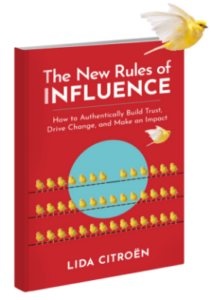With senior year winding down, college graduation is almost here. No more homework, late night studying, labs with students you don’t get along with, or grades. What a relief!

So why are you terrified to leave college? Probably because there is no natural next step. After high school, there were clear options: start working, attend college, serve in the military, or start raising a family, for instance.
Now you’re faced with NEXT… what kind of work do you want to do? Where will you live?
Know that your feelings are completely natural and normal. Everyone facing a big life change will feel anxious, whether it’s something you’re excited about or not. Before graduation, consider these tips to develop a game plan for the first few years after school:
Take care of yourself
Any change is stressful. This isn’t just about leaving college. Over your career, you will change jobs and companies, leave friends, and make new ones. The skills you’re learning now will help prepare you.
You’re not alone. Every one of your peers is facing this same stress and challenge. Even if they have a job lined up, they will be stepping into a new work situation for the first time. You are all saying goodbye to a chapter in your life that was (hopefully) enjoyable and empowering.
Practice deep breathing exercises, make sure you take care of your health, and know that this is just a process. You WILL get through it; the goal is not to just get around it.
Take inventory of how well you are evaluating and making decisions. Give yourself a pep talk when you need it, and review your lists of good steps taken.
Identify your assets
Even if your resume is finished and polished, make lists of your assets: your strengths, skills, talents, goals, and unique abilities. Sometimes just making these lists helps remind you that you have a lot to offer an employer!
Keep lists of these answers for your job search and for your own personal journey:
- What am I really good at? For example: helping people, solving problems, making people feel welcome, sports, math, writing, entertaining others…
- What do people appreciate about me? For example: I’m friendly; I make them feel safe and protected; I am helpful; I stay out of their business; I can keep a secret…
- Who inspires me? For example: My English professor because she speaks from her heart; my father because he works hard; Mahatma Gandhi because he taught kindness and patience…
- What issues, causes, or topics am I really passionate about? For example: helping people in third world countries become entrepreneurs; protecting children in bad neighborhoods; teaching people to love golf; the history of the English language…
- If money and location were not an issue, what would I love to do as a career? For example, live in South America and help teach surfing, write poetry, teach kids about sports, run a coffee shop that featured local artists’ work ….
- What classes, internships or jobs have I had that I really enjoyed? What did I learn through them – about the work and about myself?
Create a game plan
Your plan will include your non-negotiables (such as location, amount of travel, needed income, ethical guides) and your options. Options include industry, company, people, and ways you will work. For instance, if you don’t want to leave your community, you might have the option to work for a company remotely (from your home). In another case, you might want to work for a golf club manufacturer, but you need experience working in the sports industry first.
Think about the reputation you’d like to earn for your career: Do you want to be seen as someone who is innovative and creates disruptive technology? Or, would you like to be known as someone who is passionate about service and helping people less fortunate?
Your game plan should include the inventory of your
- Skills – what do you do well?
- Talents – what natural gifts do you have?
- Experience – include experiences from internships, clubs, jobs, community/volunteer, or school projects
- Goals – see the lists you wrote in #2
- Needs – identify anything you can’t compromise on (i.e. location)
Next, consider what kind of work would make you happy. Do you enjoy working inside or outdoors? Do you like to be around creative types or more analytical people? What kind of people do you feel will best align with your personal brand and values?
Then, identify the companies that you would love to work for, given the answers you wrote to the questions above. If you are passionate about the environment, for instance, then working for a company committed to sustainability and nature would be a great fit!
Finally, align your skills, talents, and experience to the companies you’d like to work for. This is how your game plan takes form! You are mapping your offer to the needs and goals of the companies who are looking for you!
Next week, I’ll share my suggestions for targeting those companies with your offer and positioning yourself (online and in person) to get their attention and get hired!


